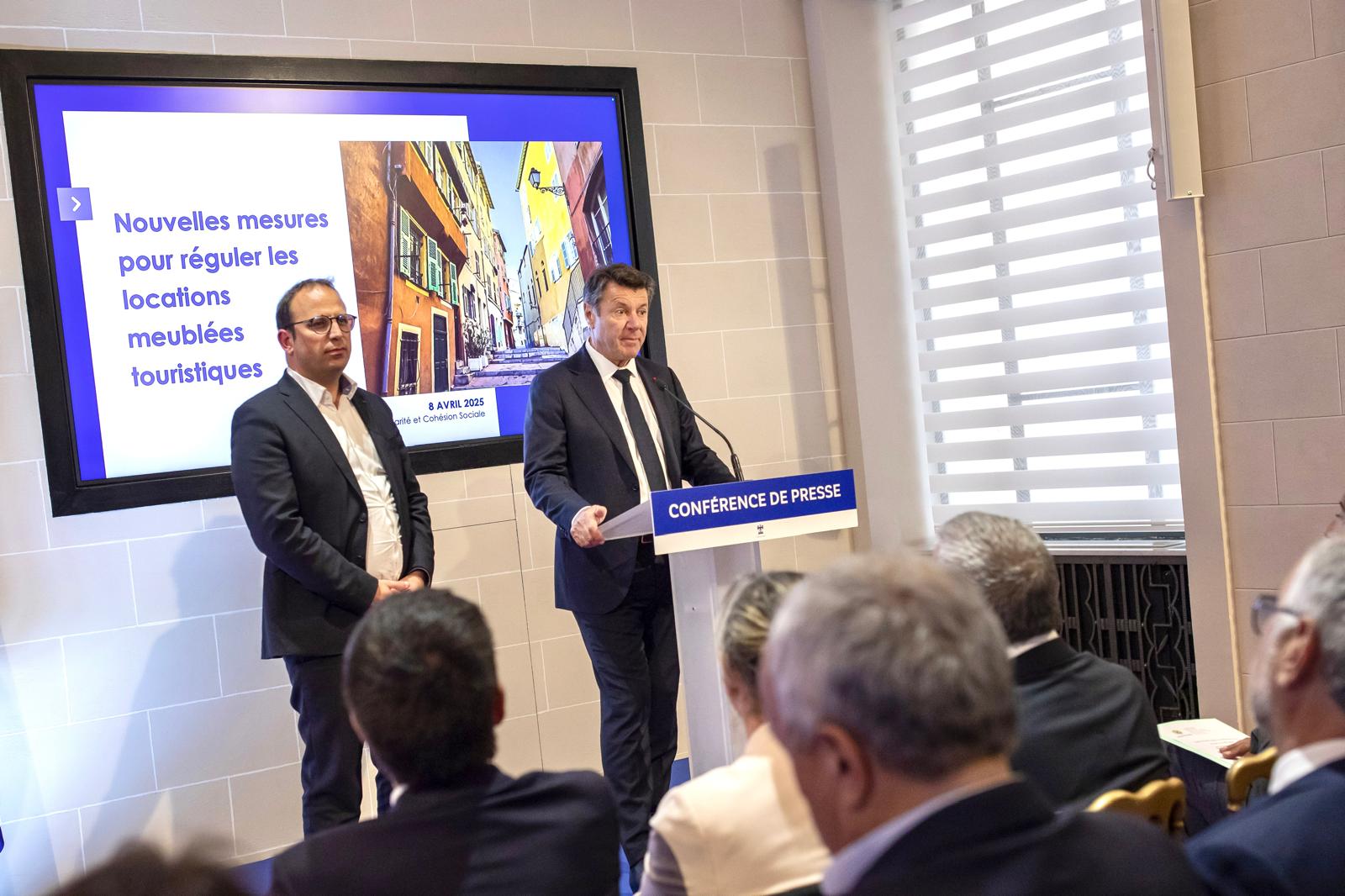
Faced with the explosion of tourist rentals in its territory, the City of Nice unveils a set of measures to better regulate their development, following the LE MEUR law. Objective: to preserve access to housing for the people of Nice.
On Tuesday, April 8, Christian Estrosi, Mayor of Nice, presented a set of new measures aimed at more strictly regulating furnished tourist rentals. “I will not let the people of Nice be prevented from living in Nice,” he emphasized at the conference’s opening. In his sights: the growing professionalization of platforms like Airbnb and investors who are transforming housing into exclusively tourist properties, to the detriment of residents.
A Critical Situation
Nice is the second French city in terms of the number of tourist rental listings, behind Paris. According to a study conducted by the Metropolis, 13,692 listings were active in 2022, totaling 5.7 million overnight stays. Some areas, such as Vieux Nice or the Promenade des Anglais, account for up to 70% of these listings. In these neighborhoods, the permanent population is plummeting: -7%, while the rest of the city gains inhabitants (+2%).
At the same time, the profitability of a furnished tourist rental is 4 to 8 times higher than that of a traditional rental. The result: investors are flocking, prices are rising, and residents are struggling to find housing. “The rental market has stalled,” acknowledges Christian Estrosi.
A Legal Turning Point
The LE MEUR law, adopted in November 2024, finally provides local authorities with the necessary tools to regulate this phenomenon: quotas, tightening of rental conditions, and strengthening of controls.
Nice intends to fully utilize these tools. Among the main measures announced are:
- Quota of authorizations in 39 high-pressure neighborhoods, with a 50% reduction in the number of annual authorizations.
- Limit of 90 days per year for the rental of primary residences (instead of the previous 120 days).
- Reduction of the duration of temporary authorizations from 6 to 3 years, without possible renewal.
- Implementation of software for the equitable distribution of quotas.
- Requirement of a good Energy Performance Certificate (A to E) to obtain authorization.
- Mandatory declaration of compliance with condominium regulations.
- Fines of up to €100,000 for fraud, monitored by seven authorized agents.
Towards Hybrid Solutions
The city is also focusing on mixed rentals, a scheme allowing property rental to students for 9 months a year, followed by offering it for tourist rental in the summer. This “win-win” formula, already tested with 150 student apartments, will be sustained. Rent caps will be regulated: €525 for a studio apartment, up to €1200 for larger properties.
The first deliberations will take place starting mid-May 2025. The adoption of the new regulation is planned for the fall. In the meantime, software will be developed to manage requests equitably.
Nice hopes to halve the number of tourist rental listings and rebalance a currently strained real estate market.